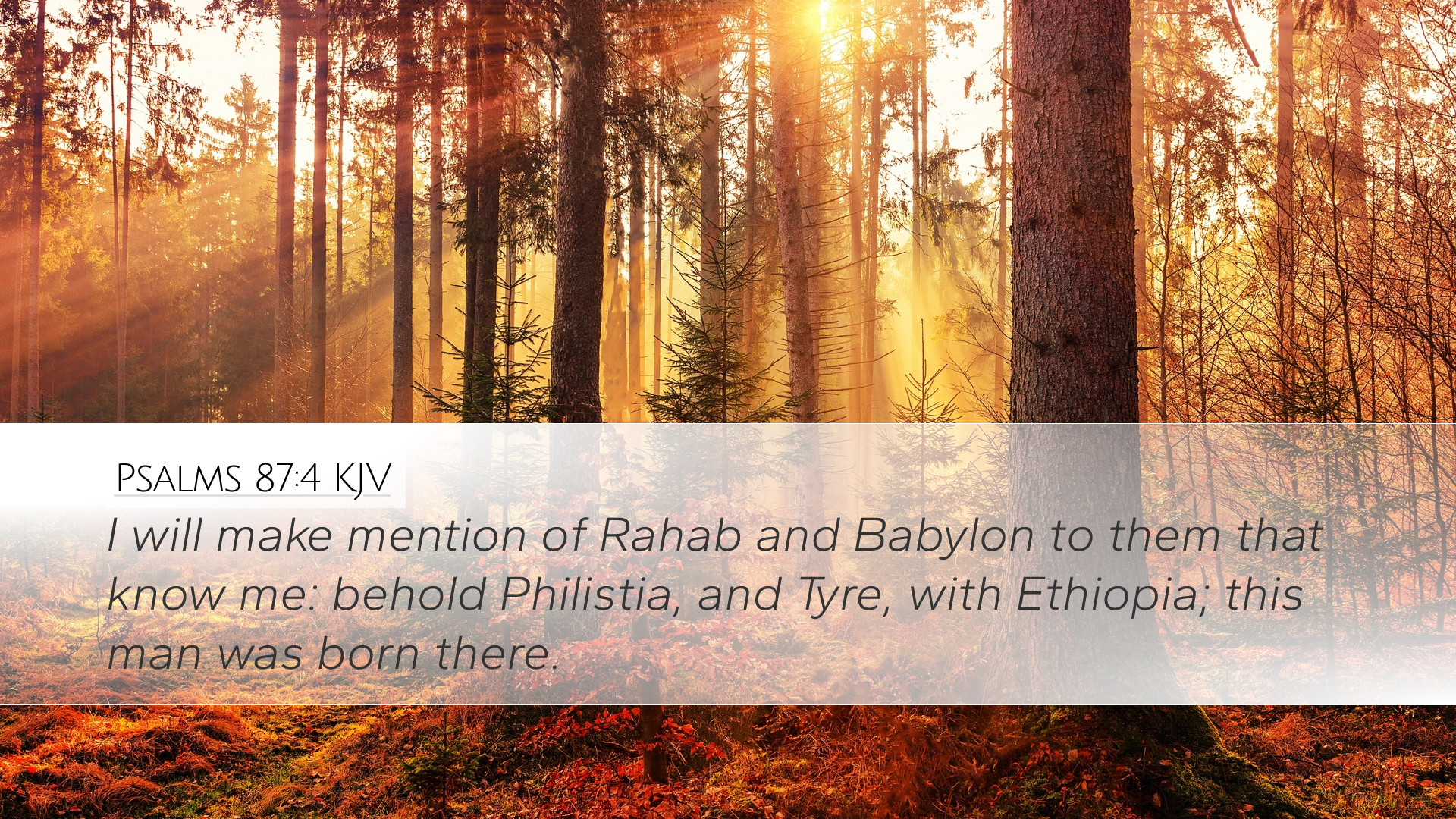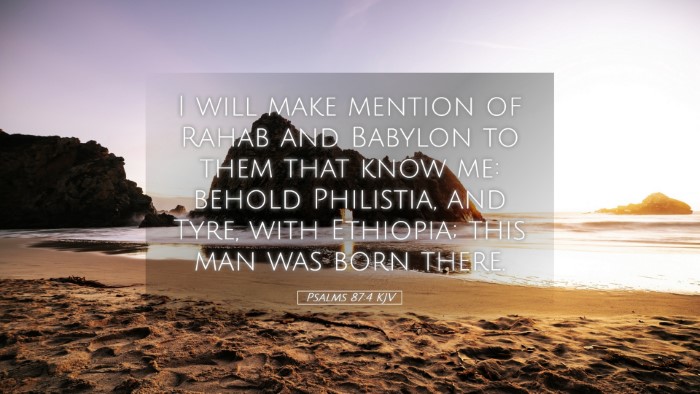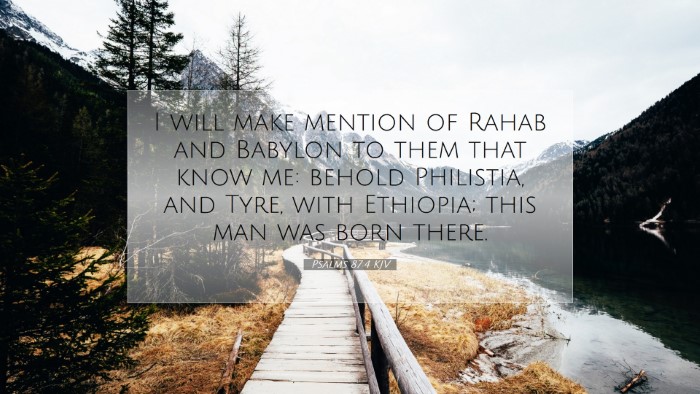Commentary on Psalms 87:4
Psalms 87:4: "I will make mention of Rahab and Babylon to them that know me: behold Philistia, and Tyre, with Ethiopia; this man was born there."
Introduction
Psalm 87 is a song celebrating Zion, the city of God, and the blessings bestowed upon it.
In verse 4, the psalmist emphasizes God's intention to recognize and include various nations in the divine plan.
Scholars and theologians recognize this inclusion as an expression of God's mercy and the universal scope of salvation, transcending ethnic and geographical boundaries.
Insights from Matthew Henry
Matthew Henry, in his commentary, highlights the significance of the cities and nations mentioned in this verse.
He notes that "Rahab" is often interpreted as a term for Egypt, symbolizing strength and pride.
To mention these cities—Babylon, Philistia, Tyre, and Ethiopia—indicates that God’s grace extends beyond the chosen nation of Israel.
Henry points out that each of these nations represents a different aspect of the human condition and highlights that even those traditionally viewed as enemies or outsiders are called into relationship with God.
Insights from Albert Barnes
Albert Barnes elaborates on the selection of nations listed in Psalms 87:4.
He suggests that "Rahab," often identified with Egypt, and "Babylon," a representation of pride and opposition to God’s people, serve as examples of those who will ultimately be recognized and even celebrated in Zion.
Barnes emphasizes the idea that true citizenship in Zion transcends birthplace and national identity.
He concludes that the verse serves to encourage those who feel they may be distant from God, reassuring them that a place exists for them within the Kingdom of God.
Insights from Adam Clarke
Adam Clarke provides a detailed analysis of each nation mentioned.
He remarks that Babylon, epitomizing captivity, signifies both a historical and a metaphorical adversary of Israel.
Clarke also notes that Tyre is emblematic of commerce and material prosperity, while Ethiopia represents a distant land of diversity.
In this context, Clarke stresses the notion that the mention of these places brings to light the magnificent inclusivity of God’s plan.
It serves as a reminder that God’s chosen people were not merely those of a particular ethnicity but included those of every nation who acknowledge His sovereignty.
Theological Reflections
-
Inclusivity of God's Salvation: The diverse nations referenced in Psalm 87:4 signify God's desire for all humanity to be reconciled to Him.
This verse is foundational for the understanding of the mission of the Church in the New Testament, urging believers to reach out to all ethnic groups.
-
God's Sovereignty Over Nations: Mentioning powerful nations like Babylon and Egypt illustrates God’s control over history and nations.
It reminds us that regardless of worldly alignments, God's purpose prevails, and He calls all to His kingdom.
-
Identity in Christ: The verse also speaks to the theme of identity for believers.
No matter where one is born, true identity is found in being born again into the family of God, as echoed in the New Testament teachings of Christ.
-
Redemption Beyond Borders: This verse affirms that God’s redemptive work knows no borders.
Pastorally, this can be a source of encouragement to diverse congregations, emphasizing unity in diversity as part of God's design.
Application for Pastors and Theologians
For pastors, this passage serves as a reminder to promote inclusivity within their ministries.
It encourages the church to embrace people from all backgrounds and to cultivate environments where all are welcome.
Theologically, scholars are invited to explore how this inclusivity reflects the broader narrative of Scripture and God’s redemptive history.
The acknowledgment of different nations emphasizes the global call of the Gospel and the ongoing mission of the Church.
Conclusion
Psalms 87:4 serves as a powerful testament to the scope of God’s grace and the expansive nature of His kingdom.
Through the insights provided by interpreters throughout history, we see a rich tapestry that illustrates God’s unrelenting will to include all nations in His plan of salvation.
As we reflect on this verse, may it inspire a deep commitment to live out the call of the Gospel in every community, recognizing that every person, regardless of their earthly origins, can find their true home in the City of God.


